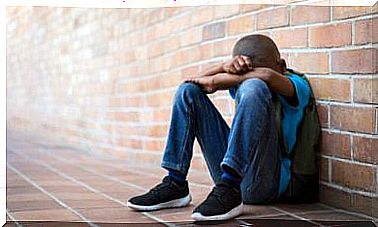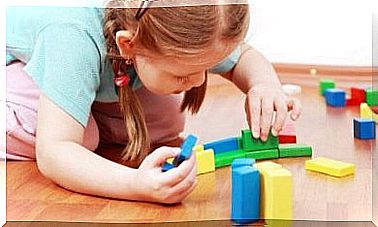What Are The Common Fears In Six Year Olds? – Being Parents
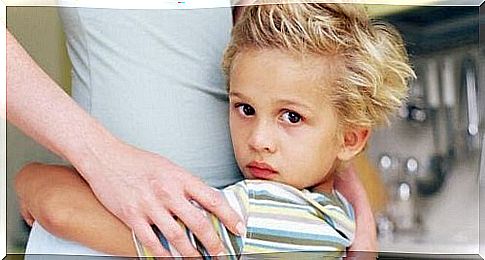
Fear is a natural feeling in all human beings. The little ones are particularly sensitive to it, because they are still discovering the world and its threats. In this article, we would like to talk about common fears in six-year-olds.
As children interact with the outside world and integrate new knowledge, by listening to stories, watching TV or playing video games, they experience new sensations. As for the little ones, they spend a lot of time at home and they mainly fear the absence of their parents.
However, starting around the age of five, they learn a lot of new things. They start to make new friends at school, to go out on the streets more often and to watch other programs on television.
They increasingly enjoy scary stories or video games where you have to kill a bad guy. But they wouldn’t want to face such horrors in the real world for anything.
Common fears in six-year-olds
Before six years, children fear the absence of their parents, animals, monsters and physical phenomena, such as thunder, for example. From the age of six, the range of frequent fears becomes much wider.
Animals
As we said in the introduction, children are approaching an age where they increasingly enjoy having fun outdoors. During his travels in the outside world, he may encounter a growling dog or other animal and experience it as a bad experience.
It is for this reason that animals are one of the common fears of six-year-olds. However, they can also be afraid out of ignorance. For example, a child may be afraid to approach a cat and then find that it is affectionate.
We can include insects in this category. Spiders are the first on the list, but we can also think of cockroaches and worms.
Black
At this stage of their development, children are encouraged to sleep alone in their own bedroom. Turning off the lights is then associated with the appearance of all kinds of malicious beings who take advantage of the loneliness of children to attack them.
The fear of the dark is perfectly natural. Moreover, it is not only one of the common fears in children of six years: some adults also feel it. It is for this reason that you must be patient. If your child asks you to, leave the light on at night until this unpleasant feeling goes away.
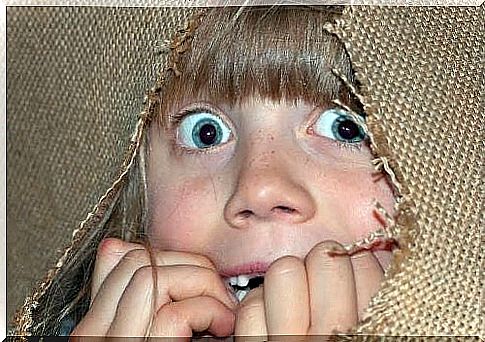
People with bad intentions
Many six-year-olds are afraid of thieves, kidnappers or other malicious criminals they might come across on the street.
It is a state of alert that can be useful to them. However, if it becomes excessive, they may start to be suspicious of others, even if the situation is not worth it.
Obviously, it is important to teach them that they should not interact with strangers under any circumstances. In addition, this lesson also makes them feel more secure.
Monsters
A large majority of children are afraid of monsters. At this age, they have an overflowing imagination in full development. It is normal that they invent beings and situations as absurd as terrifying.
This is normal and shouldn’t be of concern. Just try to help your child have more peace of mind. He will overcome this fear little by little.
The water
Water is also a common fear among six-year-olds. Again, this is a natural fear in human beings.
It is for this reason that children can be afraid of stepping into the sea or entering a swimming pool, even if they do not know anything about the risk of drowning. They may also be afraid of the bathtub for the same reasons.
Parents can prevent the onset of this fear. You should get your little one used to water from an early age. He will understand that he can be safe in the water and even have fun there.
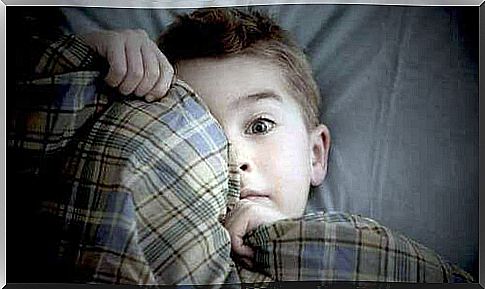
What if my child is afraid?
It is essential that parents show understanding and listening. Let your child express his fears, support him and accompany him.
In addition, you can give it a symbolic element that will make it stronger. For example, a magic wand to ward off monsters or a pet that can defend it against malicious people.
You must also educate by example. Show your child to face his fears.
What you must not do
There are things you should absolutely avoid when a child shows fear.
- Underestimating his fear, telling him to be a little more courageous or that there is nothing to worry about.
- Promise him a reward if he faces his fear. He might not only use it to his advantage, but also believe his fear is legitimate.
- Tell her terrifying stories to change her behavior. For example, so that he does not go outside to play at night.
- Communicate your fears to him. This often happens, for example, when a child pulls away a bit to play and an adult shouts “get out of there: someone could push you”, instead of saying “be careful not to wrong”.
When a child is afraid, it is normal for him to cry or to avoid the origin of his terror. If the symptoms seem disproportionate to you, you can talk to a child psychologist. It may be a phobia.
Finally, remember that we all feel fear. Be understanding and help your child overcome hers in the best way.
